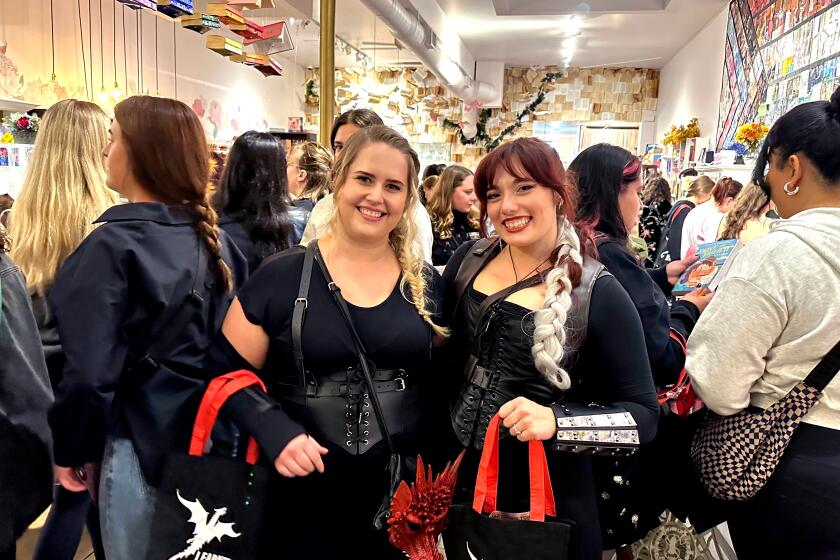Viet Thanh Nguyen’s Great American Novels: ‘The Woman Warrior’ and ‘China Men’
- Share via
No one can claim in absolute seriousness to be writing the Great American Novel, not without risking the polite smiles and muted derision of others. One says one is writing the Great American Novel the same way one announces a midlife crisis, with a faint air of the ridiculous. And to call someone else’s book the Great American Novel can only lead to skepticism, especially as we live in an age where all these terms — the, great, American, novel — seem rife with potential for doubt.
Instead, I offer a great American novel which does not even seem to be a candidate. It is two books rather than one, neither of which are possibly even novels, their America balanced with other places: Maxine Hong Kingston’s “The Woman Warrior” (1976) and “China Men” (1980), a duo that she imagined could have been published as one volume. They mix one woman’s story with those of her extended Chinese immigrant family, blending nonfiction and fiction, legend and oral storytelling, history and imagination.
One of the unspoken silences of the Great American Novel is the assumption that it can only be written by white men.
— Viet Thanh Nguyen
These are different genres separated by walls of form, which separate, for example, a novel from a memoir. Kingston scales those walls to see what lies beyond them. Such an impulse is not only aesthetic. It also emerges among the most daring and imaginative people who have been confined by walls, or kept out by them, whether they be women, misfits or minorities of any kind. Kingston’s writing deals with all three.
Facing walls, the conventional response is to ask to be let in or let out; the unconventional response is to question the very existence and meaning of walls. In the first line of “The Woman Warrior,” we are given a wall when the mother says to the daughter who writes the book, “You must not tell anyone what I am about to tell you.” This command and injunction is a barrier that is destroyed in the same sentence that it is mentioned, as the writer reveals what she has been ordered to keep silent and secret.
Our Critics at Large pick their Great American Novels
One of the unspoken silences of the Great American Novel is the assumption that it can only be written by white men. At least that is what the male-dominated literary establishment has historically told us, why some readers might only be able to name Melville, Hemingway, Fitzgerald, Faulkner, Updike, Bellow or Roth, why it shocked me to see for the first time, at 18, a book by an Asian American in a bookstore: “The Joy Luck Club.” For some readers, this is possibly a Great American Novel too.
Amy Tan is Kingston’s descendant, and in full disclosure, I was Kingston’s student at Berkeley. But I was a bad student, a rebel who had not yet paid his dues. To be honest, I was also a young man unsteadied by strong women, and Kingston’s books are indisputably feminist. I needed those books then, even if I did not know it. Giving us what we don’t know we need, something we may even resist — perhaps that’s one definition of greatness.
Nguyen is one of our Critics at Large
More to Read
Sign up for our Book Club newsletter
Get the latest news, events and more from the Los Angeles Times Book Club, and help us get L.A. reading and talking.
You may occasionally receive promotional content from the Los Angeles Times.











